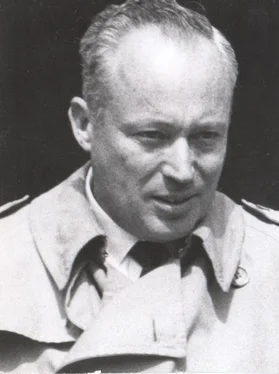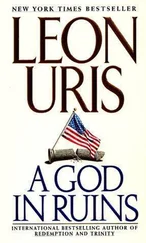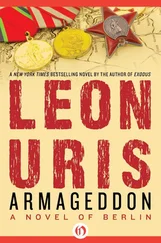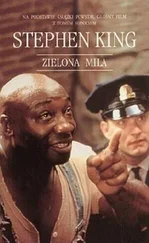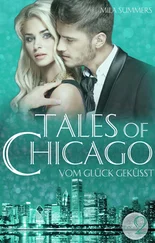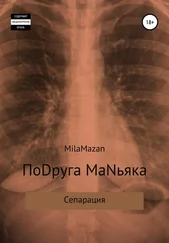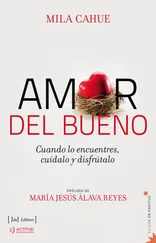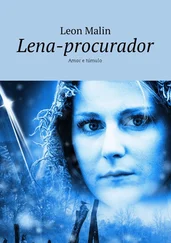He gave up. “We all battle in our own ways. I can’t do it.”
“Try once more,” Andrei said.
Alex clenched his teeth, fired with determination, and struck the match. Andrei held his wrists, steadying his hands like a kindly father, and the flame touched the wick. It fizzed.
“Throw it!”
Alex flung it over the edge like a hot rock and it spiraled down to the street.
Whommmmmmm! Plow! Fzzzzzzzztttt!
The bottle smashed on the helmet of an SS man and erupted!
“Yaaaaaaahhhh!” the human torch screamed. The ranks around him split apart and became transfixed on him as he twitched and kicked and rolled in the streets, being consumed by fire. “Yaaaahhhh! Yahhh! Yaaaaaaahhhhh!”
They all looked up to the roofs simultaneously.
Blam! Blam! Blam! Blam!
Blue flames spurted from hidden rifles and pistols, behind windows, doorways, the roofs.
Wissshhhh! Whoom! blew the fire bombs.
Sieghold Stutze’s eyes looked upward as Jewish guns vomited into their midst, spewing three years of pent-up rage. “Hans!” Stutze shrieked. “Look! A woman is firing!” He pitched forward on his face as a bullet tore at his chest. He crawled on his knees. The earth rumbled with deafening shocks of grenades. Nuts and bolts blew apart Sieghold Stutze’s stomach. He clutched at his guts spilling into the street. A fire bomb fell at his feet and whisshed up his boots, and he groveled and screamed and gagged and died. Human torches and bullet- and grenade-riddled Germans turned the intersection into a pond of carnage.
Oberführer Alfred Funk soaked luxuriously in a deep warm sudsy tub and sniffed the rising scented steam. The tones of Wagner’s Tannhäuser “Overture” crashed in from the phonograph in the living room. Between low points in the crescendo Funk could hear the sound of gunfire from the ghetto. He hummed in tune. “Da dam dam dam.”
His orderly lay a tray containing his shaving gear on the rim of the tub. Funk sharpened the razor, looking up with disdain at the orderly, who never did it properly. He flicked his thumb over the edge and was satisfied. “Dum de dum dum,” he sang, “dum de dum dum dum dum dum ... de da da da,” as he lathered his face.
“Hold the mirror still,” he snapped.
“Ja, Herr Oberführer.”
Horst von Epp appeared in the doorway, bleary-eyed, wearing a dressing gown over his pajamas. Funk looked contemptuously at him and snorted. “What gets you up at this hour of the morning?”
“You’d better drink this,” Horst said, thrusting the glass of schnapps forward.
Funk screwed up his face. “At six o’clock in the morning? Never. Dum de dumm. Da da da.” He stretched his skin so the razor could bite off the stiff chin hairs.
Horst took the mirror out of the orderly’s hand. “Alfred, put the razor down. You’re liable to cut your throat after what I tell you.”
Funk merely glowered.
“The Reinhard Corps has been massacred. Your men have been thrown out of the ghetto.”
“Damn you, Horst! This is the last of your nonsense I am going to tolerate!” He lifted the razor to resume shaving.
Horst lowered Funk’s hand slowly. “We have succeeded very well in drawing their fire. A hundred SS men have been killed. At least that number wounded. Our forces have fled beyond the wall.”
Funk blinked in disbelief, then smiled weakly. “There must be a mistake. Those are Jews in there.”
“I have prepared a press release that it wasn’t Jews but that we discovered gangs of Polish bandits hiding in the ghetto and have gone in to clean them out. The gunfire was not from Jews but from the bandits, et cetera, et cetera, et cetera.”
“Jews? Jews threw the Reinhard Corps from the ghetto? Jews?”
“Jews,” Von Epp answered.
Funk threw over the tray and slushed to his feet, half slipping. He leaped from the tub and ran into the living room. A bloody, trembling officer stood before him.
“Untersturmführer Dolfuss,” he said, snapping his heels before the naked, dripping general.
“Speak, God damn you!”
“We were caught in a terrible cross fire.”
“Where!”
The confused lieutenant tried to find Zamenhof and Mila streets on the table map filled with pretty colored pins. Funk’s orderly threw a large towel over his master.
“What the good officer is attempting to say, Alfred ... it was here,” Von Epp said.
“So,” he snarled. “So. They want the taste of the whip.” He lifted the phone. “Get me field headquarters. ... Hello ... Oberführer Funk here. Send the tank officer to my suite immediately.”
Noon.
Six medium panzer tanks rumbled through the Swientojerska Gate and hugged the wall as they proceeded toward Zamenhof Street and into the central area. Their cannons and machine guns pointed at the buildings.
Their motors set up a din, and their weight caused the streets and the buildings to tremble.
The Fighters of Ana Grinspan’s company became frozen with fear at the sight on the street. What could one do with pistols? The panzers passed under the muzzles of ineffective guns and turned into Zamenhof Street.
The gun turrets swung menacingly and aimed at the upper stories of the buildings on both sides of them. Gunners peered through the slits, looking at the lifeless, motionless windows and roofs. Now where was this army of the Jews? Now let them fire!
Andrei tried to think as the tanks rumbled toward his area. If they blasted his people to cover or if his people cowered, the Germans would own the ghetto immediately. But how to stop tanks? For an instant an agonizing thought tantalized him. Perhaps we are cowards. Perhaps all the fight was gone from us after the first ambush.
As the first tank rolled over the intersection of Kupiecka Street a lone figure darted out into the street so quickly that the German gunners could not train their guns on it. The figure ran directly in front of the lead tank.
Andrei watched the single Jewish Fighter attack the panzer. The fighter’s cap fell off, revealing a long head of flaming red hair. It was a girl! With the tank almost on top of her, she jammed a pipe grenade into its treads. The tank rolled on the grenade and exploded it. With a resounding shudder the tread unsnapped and lashed from its moorings and the tank spun around, helpless. The redheaded girl was crushed.
Fighters watching on both sides turned the panzers into iron coffins. As from the tops of ravines, they rained down a hailstorm of borscht bottles. The tanks spun crazily, firing wildly at an enemy they could not see, trying to wipe the pricks of fire from their steel skins, but the rain of bottles increased. The tanks became engulfed in flame and turned into infernos. Fighters crept up close to make their hits more certain.
One by one the hatches were thrown open and gagging, blinded, burned Germans stumbled out onto the streets, to be raked by cross fire.
Dusk.
The German corpses were stripped of uniforms and guns and ammunition and stacked at the curbstones as Jewish corpses had once been stacked in the ghetto.
The tanks were silent and smoldering and wrecked.
The streets became quiet again.
Tolek Alterman was the first up from Mila 18. He shouted at the top of his lungs, “The Germans have quit! The Germans have quit! Condition green!”
“Condition green!” a voice echoed.
Hand signals ... runners flashed from block to block.
“Hello, Haifa. The Germans have quit the ghetto! Condition green!”
“Beersheba! Condition green!”
The cries of joy and whoops bounced from building to building.
A Fighter appeared in the street, running up and down, calling the all-clear.
They poured out of the buildings and threw arms about each other and skipped and somersaulted and hugged each other and cried and shouted and wept for joy.
Читать дальше
